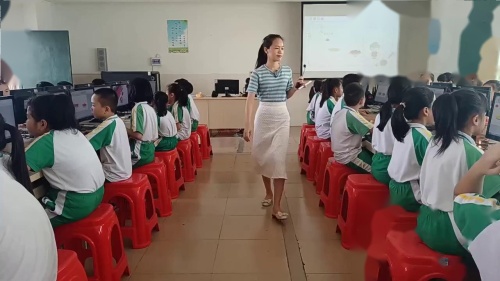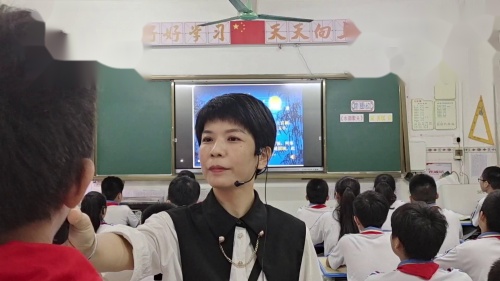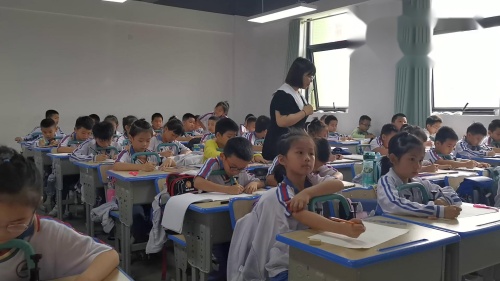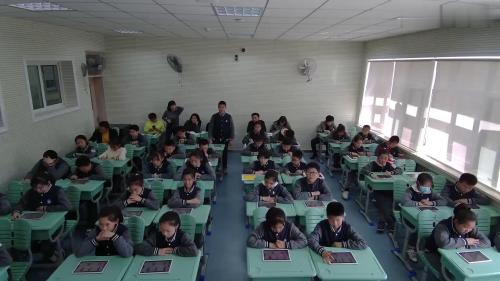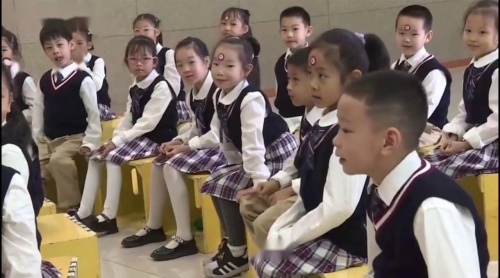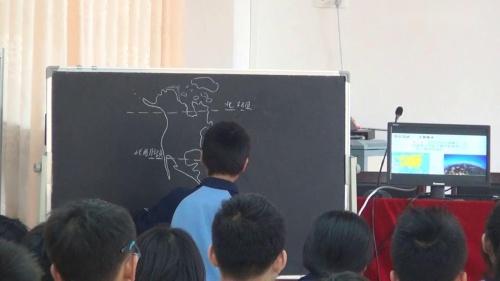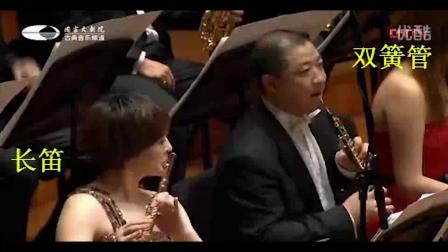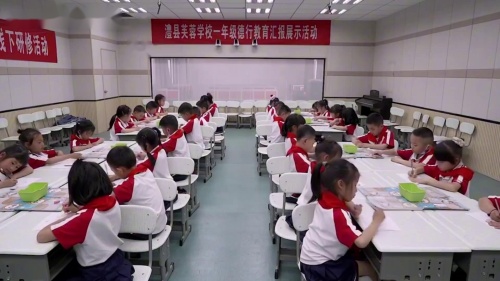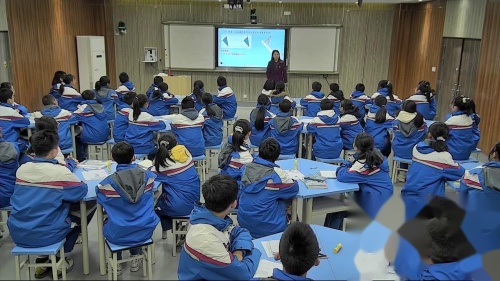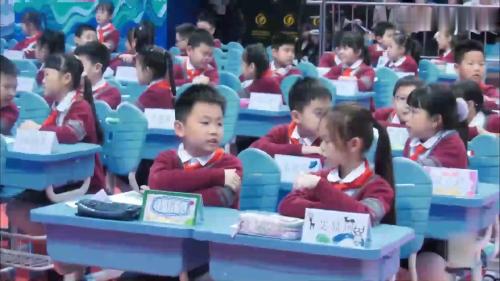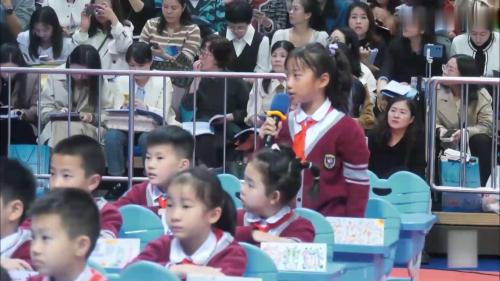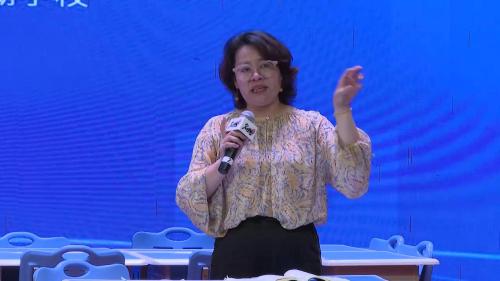九年级上册英语电子课本人教版
九年级上册英语电子课本人教版2023
由于其广阔的殖民地,英语已成为世界上使用最广泛的语言。那么关于九年级上册英语电子课本怎么学习呢?以下是小编准备的一些九年级上册英语电子课本人教版,仅供参考。
九年级上册英语电子课本

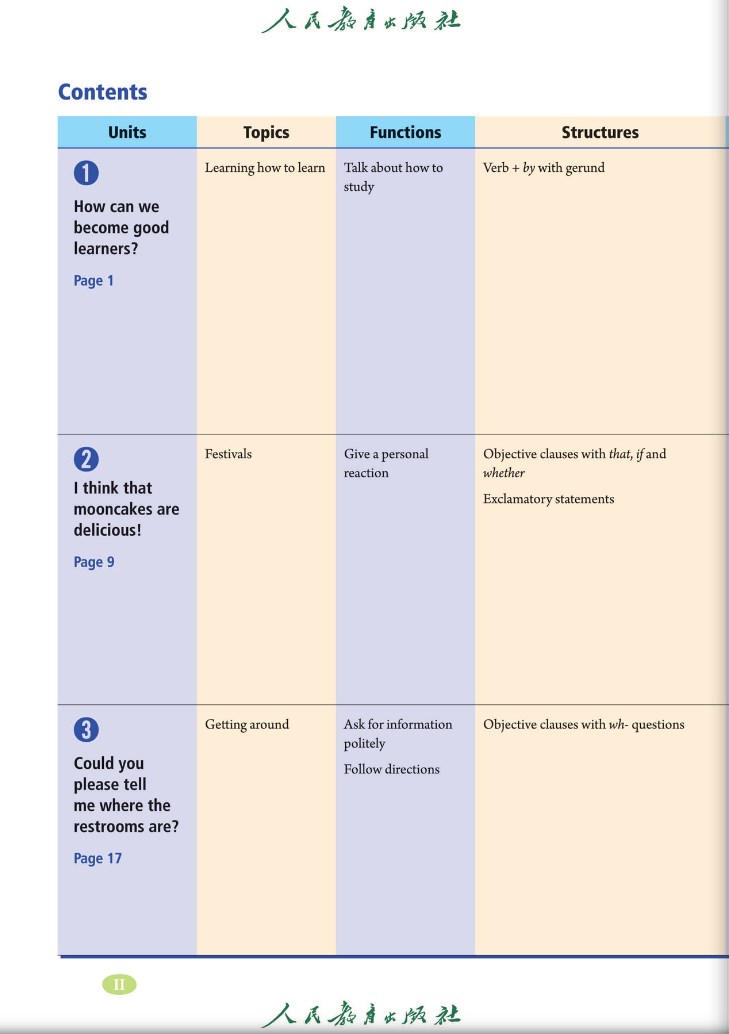
在线阅读请点击链接查看
查看完整版可微信搜索公众号【5068教学资料】,关注后对话框回复【9】获取九年级语文、九年级数学、九年级英语电子课本资源。
九年级上册英语知识点
1.Check in : 在旅馆的登记入住。 Check out: 在旅馆结账离开。
2.By: ①通过…..方式(途径)。例:I learn English by listening to tapes.
②在…..旁边。例:by the window/the door
③乘坐交通工具 例:by bus/car
④在……之前,到……为止。例:by October在10月前
⑤被 例:English is spoken by many people.
3.how与what的区别:
how通常对方式或程度提问,意思有:怎么样 如何,通常用来做状语、表语。
what通常对动作的发出者或接受者提问,意思为 什么,通常做宾语,主语。
①How is your summer holiday? It’s OK.(how表示程度 做表语)
②How did you travel around the world? I travel by air.
③What do you learn at school? I learn English, math and many other subjects.
① What…think of…? How…like…?
② What…do with…? How…deal with…?
③ What…like about…? How…like…?
④ What’s the weather like today? How’s the weather today?
⑤ What to do? How to do it?
e.g. What do you think of this book?=How do you like this book?
I don’t know what I should do with the matter.=I don’t know how I should deal with it.
What do you like about China?=How do you like China?
I don’t know what to do next step?=I don’t know how to do it next step?
㊣ What good / bad weather it is today!(weather为不可数名词,其前不能加 a )
㊣ What a fine / bad day it is today! (day为可数名词,其前要加 a )
4. aloud, loud与loudly的用法 : 三个词都与"大声"或"响亮"有关。
①aloud是副词,重点在出声能让人听见,但声音不一定很大,
常用在读书或说话上。通常放在动词之后。aloud没有比较级形式。
如: He read the story aloud to his son.他朗读那篇故事给他儿子听。
②loud可作形容词或副词。用作副词时,常与speak, talk, laugh等动词连用,多用于比较级,须放在动词之后。如:
She told us to speak a little louder. 她让我们说大声一点。
③loudly是副词,与loud同义,有时两者可替换使用,但往往
含有令人讨厌或打扰别人的意思,可位于动词之前或之后。如:
He does not talk loudly or laugh loudly in public. 他不当众大声谈笑。
5. voice 指人的嗓音 也指鸟鸣。
sound 指人可以听到的各种声音。
noise 指噪音、吵闹声
6. find + 宾语 + 宾补(名词 形容词 介词短语 分词等)
例:I find him friendly. I found him working in the garden.
We found him in bed. He found the window closed.
We found her honest.
7. 常见的系动词有:
①是:am 、is、 are
②保持:keep、 stay
③ 转变:become、 get、 turn
④ ……起来 feel、 look、 smell、 taste、 sound
8. get + 宾语+宾补(形容词 过去分词 动词不定式) 使某种情况发生
例:Get the shoes clean. 把鞋擦干净
Get Mr. Green to come. 让格林先生进来
I want to get my bike repaired. 我想去修自行车
You can’t get him waiting. 你不能让他老等着
9. 动词不定式做定语
①与所修饰的名词构成主谓关系
The next train to arrive was from New York. He is always the first to come.
②与所修饰的名词构成动宾关系
I have nothing to say. I need a pen to write with.
I need some paper to write on. I don’t have a room to live in.
10. practice , fun 做名词为不可数名词
11. add 补充说 又说
12. join 加入某团体 并成为其中一员 attend 出席参加会议或讲座
join in与take part in指参加到某项活动中去。
13.all、 both、 always以及every复合词与not连用构成部分否定。其完全否定为:all---none, both---neither, everything---nothing, everybody---nobody.
14. be afraid of doing sth. / sth.害怕 be afraid of being alone
be afraid to do sth.害怕
be afraid that恐怕担心,表示委婉语气
15.either:①放在否定句末表示“也”
②两者中的“任一”
③either…or…或者…或者.…引导主语部分,谓语动词按照就近原则
16.complete完成,是个较正式的词,后不能接动名词
finish指日常事物的完成
17.a,an 与序数词连用表示“又一”,“再一”。
例:Please give me a second apple. There comes a fifth girl.
18.have trouble/difficult/problem (in) doing….. 干…..遇到麻烦,困难
19.unless 除非,如果不,等于“if not”本身就表示否定,引导条件状语从句,主句为将来时,条件状语从句用一般现在时表示将来。
例:My baby sister doesn’t cry unless she’s hungry.
=My baby sister doesn’t cry if she isn’t hungry.
Unless you take more care, you’ll have an accident.
如果你不多加小心的话,你会出事的。
20.instead: adv. 代替,更换。
例:We have no coffee, would you like tea instead?
我们没有咖啡了,改喝茶好吗?
It will take days by car, so let’s fly instead.
开车去要好几天呢,咱们还是坐飞机吧。
Tom was ill, so I went instead.汤姆病了,所以换了我去。
instead of doing sth. 作为某人或某事物的替换
例:Let’s play cards instead of watching TV.
We sometimes eat rice instead of potatoes.
Give me the red one instead of the green one.
21.spoken 口头的,口语的。spoken English 口头英语
speaking 讲话的,说某种语言的。Speaking skills讲英语的能力
22. 提建议的句子:
①What/ how about +doing sth.? 如:What/ How about going shopping?
②Why don’t you + do sth.? 如:Why don’t you go shopping?
③Why not + do sth. ? 如:Why not go shopping?
④Let’s + do sth. 如: Let’s go shopping
⑤Shall we/ I + do sth.? 如:Shall we/ I go shopping?
23. a lot 许多 常用于句末 如:I eat a lot. 我吃了许多。
24. too…to 太…而不能 常用的句型 too+adj./adv. + to do sth.
如:I’m too tired to say anything. 我太累了,什么都不想说。
25. not …at all 一点也不 根本不 如:
I like milk very much. I don’t like coffee at all.
我非常喜欢牛奶。我一点也不喜欢咖啡。
not经常可以和助动词结合在一起,at all 则放在句尾
26.be / get excited about sth.=== be / get excited about doing sth.
=== be excited to do sth. 对…感兴奋 如:
I am / get excited about going to Beijing.===
I am excited to go to Beijing. 我对去北京感到兴奋。
27. ① end up doing sth 终止做某事,结束做某事 如:
The party ended up singing. 晚会以唱歌而结束。
② end up with sth. 以…结束 如:
The party ended up with her singing. 晚会以她的歌唱而告终。
28. first of all 首先
to begin with 一开始
later on 后来、随
29. also 也、而且(用于肯定句)常在句子的中间
either 也(用于否定句)常在句末
too 也 (用于肯定句) 常在句末=as well
30. make mistakes 犯错
mistake sb. for …把……错认为……
make mistakes (in) doing sth. 在干某事方面出错
by mistake 错误地;由于搞错
mistake---mistook----mistaken
如:I often make mistakes. 我经常犯错。
I mistook him for his brother.我错把他认成了他的哥哥。
make a mistake 犯一个错误 如: I have made a mistake.
我已经犯了一个错误。
31. laugh at sb. 笑话;取笑(某人)
如:Don’t laugh at me!不要取笑我!
32. take notes 做笔记,做记录
33. enjoy doing sth . 喜欢做…乐意做… 如:
She enjoys playing football. 她喜欢踢足球。
enjoy oneself 过得愉快 如:He enjoyed himself. 他过得愉快。
34. native speaker 说本族语的人
35. one of +(the+ 形容词比较级)+名词 形式 …其中之一
如: She is one of the most popular teachers. 她是受欢迎的教师之一。
36. It’s +形容词+(for sb. ) to do sth. (对于某人来说)做某事…
如:It’s difficult (for me ) to study English.对于我来说学习英语太难了。
句中的it 是形式主语,真正的主语是to study English
37. practice doing 练习做某事 如:
She often practice speaking English. 她经常练习说英语。
38. decide to do sth. 决定做某事 如:
LiLei has decided to go to BeiJing . 李雷已经决定去北京。
39. deal with 处理 如:I dealt with a lot of problem.
40. worry about sb./ sth. 担心某人/ 某事
如:Mother worried about his son just now. 妈妈刚才担心他的儿子。
41. be angry with sb. 对某人生气 如:
I was angry with her. 我对她生气。
42. perhaps === maybe 也许
43. go by (时间) 过去 如: Two years went by. 两年过去了。
44. see sb. / sth. doing 看见某人正在做某事 强调正在发生
see sb. / sth. do 看见某人在做某事 如:
如: She saw him drawing a picture in the classroom.她看见他正在教室里画画。
45. each other 彼此
46. regard… as … 把…看作为…. 如:
The boys regarded Anna as a fool. 这些男孩把安娜看成傻瓜。
47. too many 许多 修饰可数名词 如:too many girls
too much 许多 修饰不可数名词 如:too much milk
much too 太 修饰形容词 如:much too beautiful
48. change… into… 将…变为…
如:The magician changed the pen into a book. 这个魔术师将这本书变为一本书。
49. with the help of sb. == with one’s help 在某人的帮助下
如:with the help of LiLei == with LiLei’s help 在李雷的帮助下
50. compare … to … 把…与…相比
如:Compare you to Anna, you are lucky.你和安娜相比,你是幸运的。
九年级上册英语练习题
()1.Thisis_______emptybottle.Butitis_______usefulone.
A.a;aB.an;aC.an;theD.a;an
()2.Itwillbebadforyourhealthtoeat_______foodandtake_______exercise.
A.fewer;moreB.more;fewerC.less;moreD.more;less
()3.Herearesomeflowers________you_______ourbestwishes.
A.to;forB.of;toC.for;withD.from;to
()4.—Look!ThatmanlookslikeMrGreen.
—Itcan’tbehim.He_________toAmerica
A.wentB.willgoC.hasgoneD.isgoing
()5.Theredsuitcaseisexpensive_________it’smadeofleather.
A.becauseB.thoughC.whenD.if
()6.MrGreenaskedhisstudentsto__________thenewwordsinthedictionary.
A.lookatB.lookupC.lookforD.lookafter
()7.Sandyusedtoeatfastfood.Butnowshe_______eatsthem.Sosheisbecomingmuchhealthier.
A.usuallyB.oftenC.seldomD.always
()8.—Howmuchdidallthesestationery_________you?
—About80yuan.
A.costB.spendC.payD.take
()9.Thepersonunder16yearsoldshouldn’t_____________togototheInternetbar.
A.allowB.beallowedC.stopD.bestopped
()10.Noonecanbesure__________inamillionyears.
A.whatmanlookslikeB.whatwillmanlooklike
C.whatdoesmanlooklikeD.whatmanwilllooklike
()11.Mydaughterwantsarabbitforlong,butIhavenotimetobuy________forher.
A.itB.oneC.theoneD.that
()12.Whenyouseethetrafficlightisred,you________crossthestreet.It’sdangerous.
A.don’tB.needn’tC.mustn’tD.wouldn’t
()13.Wow!Therearesomanybooks.Ireallycan’tdecide________.
A.whichtobuyB.tobuywhichC.whattobuyD.tobuywhat
()14.It’sraininghard.Wehavetostayathome__________goingfishing.
A.infrontofB.becauseofC.inneedofD.insteadof
()15.—Didyouhaveagoodweekend?
—_________.Ienjoyedmyselfwithmyfamilyonthebeach.
A.I’mafraidnotB.I’mnotsureC.OfcourseD.Ihopeso
九年级上册英语教案
教学目标(Teaching Aims)
通过本课教学,使学生初步学会说:什么东西或什么人在什么地方,即人或物所在的位置。并要求学生尽可能在交际场合使用。本课只教学生静态位置的表达。(动态位置以后再学)要学习be动词,介词in, on, near, behind, under以及定冠词the和不定冠词a/an的用法。
词汇学习: 掌握: of, classroom, answer, blackboard, some, schoolbag, flower, find, window
理解: broom, raincoat, cap, Hong Kong, Macao, SAR
语音: /i:/ e /e/ e /k/ k /^ / g /s/ s /z/ s
教学建议
本课主要学会表达大范围 (Where is Beijing?) 和小范围 (Where is my desk?) 的空间关系。小范围的空间关系,可利用教室里的物品练习句型。老师可不断的变换物品的位置让学生熟悉前面提到的几个介词。
大范围的空间关系,老师可利用地图让学生确认我国主要城市的位置。老师同时要以特殊的表达导入介词“特指the”与“泛指a/an”用法。
以上表达应会听、说、(包括会问回答)读,语调语、音基本正确。
辅音音标的发音不必一步到位。如; /s/, /z/
教学重难点分析
1.句型
a.主谓一致,即be动词的单复数。
Where is/ Where’s …?
It is/ It’s on/ in/behind/near/under the…
Where are/ Where’re …?
They are/ They’re on/ in/behind/near/under the…
注意语序:
特殊疑问句: 疑问词 + 是动词 + 主语 + 问号
b. 介词in, on, near, behind, under的用法; 可组成介词短语。
介词 + 定冠词 + 名词
如:in the morning, at night, in the desk, on the table, near the door等。
2. 日常交际用语
Look at the picture. What can you see …? I can / can’t see… Can you see …?
Where is /Where’s…? It is / It’s in, behind, near, under the…
Where are /Where’re …? They are / They’re in, behind, near, under the…
单词训练建议
classroom, blackboard, schoolbag, raincoat,football 均为合成词。可让学生利用所学过的单词知识,自学这些单词。
学生能自学的词尽量让学生自学,老师可稍加引导,以下单词可迁移,让学生自己读 behind → find room →broom
口语训练建议
本课的口语训练应放在空间关系上。并应当贯穿始终。口语训练重要的一环就是正确引入“位置”所谓概念。这与中文有较大的差异。中文说:在… 里,(上,后面,附近)的结构,英文只用一个介词,不同的介词比表达了不同的位置,而且一般要与定冠词the连用。向学生们介绍介词时,多用直观展示,适当用中文。
为了使学生能够确切把握介词的特点,我们在训练的初阶段应当集中展示两个物体之间的变化,不要过早的变换物体,这样学生就能聚精会神的体会位置表达的基本方法。注意以下几点:
1.创设一个合乎生活逻辑的语境。
2.寻找一个非设计空间表达不可的动机。如:寻找一个提问者看不见的东西。 老师上课找不见黑板擦,问一个学生。---- Where’s the brush? ---- It’s under the teacher’s table.老师也可自问自答。尽量从交际出发,减少纯句型练习。
3.确定对话参与者之间的特定关系。
在物体选择上,好一大一小,构成一主一从的格局。建议教师使用一个色彩鲜明的大纸盒和一个具有对比色度的小球,然后再换成玩具小动物,如小狗或小猫等,引起学生更大的兴趣。
画一只猫和一个盒子,这只猫分别在盒子的四个位置,即在上、在下、在里、在后。
运用型训练建议
老师可设计一个让学生去办公室去拿东西的情景,告诉学生东西的位置。这个练习好事先和课代表准备好。课上给全班同学演示。其目的是告诉学生们介词在生活中的运用。
Eg.
Teacher: Could you help me?
Student: Sure.
T: Go to my office and fetch your notebooks.
S: Where are our notebooks?
T: They are on my table.
S: Where is your table?
T: It’s near the second window.
S: OK.
笔头训练建议
老师可设计一些基本的测试性的笔头练习,但一定是课堂上反复练习过的。多用直观的方式提供物体的位置,适量中文。注意以下几点:
1.清楚的展示物体的位置。
2.严格限定表示条件。
3.迅速反馈改正信息。
语法训练建议
冠词训练
a. 第一次提到用a/an。
b. 定冠词特指后接单述或复数名词。
可指教室里存在的东西,如:地面、时钟、桌椅等, 大家都知道的物品。
c. 位置介词的用法。
in the bag, under the table, on the desk , on the table等。
情感教育建议
通过本课的确定位置,以及寻找物品,告诉学生应养成放好自己的物品,不乱扔乱放东西的习惯,培养学生乐于助人,帮助别人寻找东西,以及拾到东西应交公或交还失主的良好品德。
可利用本课所提供的内容,Taiwan, Hong Kong, Macao, SAR, 进行爱国主义教育。
情景教学
学习方位表达在日常生活中很有用。我们身边有很多可就地取材的东西,建议老师在教、学生在学的时候,都不要忽略了身边的实物。如:书包在哪里,书在哪里,桌椅在哪里等。同学们要尽可能练到脱口而出,这样在交际时才能做到熟练自然,学以致用。看地图讲地名,要求学生有地理知识。老师不妨在课前让学生熟悉一下地图,知道三亚在海南,西安在陕西。此后再学用英语表达难度会小些。如有可能,再让学生看看美国地图、英国地图,谈谈伦敦在哪儿,华盛顿、纽约在哪儿,巩固所学知识,提高学习兴趣。
冠词a/an, the的用法
冠词是用在名词前帮助说明所指的人或事物。其分为不定冠词(a, an)和定冠词(the)。
不定冠词a和an的功能
1、 指人或事物的某一种类。例如:He is a student..他是学生。
2、 指人或某事物,但不具体说明何人或何物。例如;A boy is over there.
3、 表示数量“一”的概念。例如:I have a bike, a computer and a small room. 我有一辆自行车、一台电脑和一个小房间。
4、 用于某些固定词组中。例如:have a look, have a seat等。
定冠词the的用法描述
1. 用来特指某些人或某些事物。例如:The books on the desk are our teachers(books被on the desk所限定).桌上的书是我们老师的。
2. 常用在上文提到过的人或事物的名词前。例如:There is a chair in the room. A woman is on the chair. The woman in lilys mother.房间里有一把椅子,一位妇女坐在椅子上,那位妇女是莉莉的妈妈。
3. 用来指说话人双方都知道的人或事物。例如:Where is the teacher?老师在哪儿(双方都知道指的是哪个老师)?
4.在世界上独一无二的事物前。如:the moon
5. 在序数词和形容词高级前。如:the youngest boy(年轻的男孩) the first lesson(第一课)
6. 用在乐器类前。如:play the violin(拉小提琴)
7. 用在“姓”前,且“姓”后面加-s,表示“一家人” 如:The Greens are not here
8. 用在一些习惯用语中。例如:in the morning, in the same class等。
何时不用冠词?
1. 在专用名词前。例如: in China; in Grade One等。
2. 名词前已有了做定语用的形容词、某些代词、名词所有格等修饰词语时。例如:this pencil; his knife等。
3. 表示一类人和事物的复数名词前。例如:These are oranges.
4. 在称呼语或头衔的名词前。例如:This is Miss Gao/ Mr. Wang/ Mrs. Liu.
5. 在某些习惯用语中。例如:go home; go to school等。
九年级上册英语电子课本人教版相关文章:
扫一扫手机观看!

